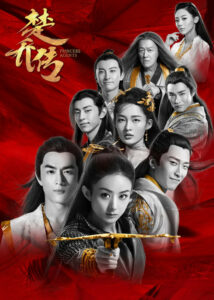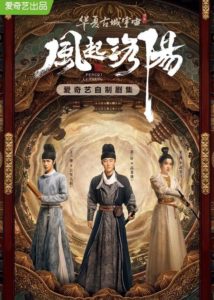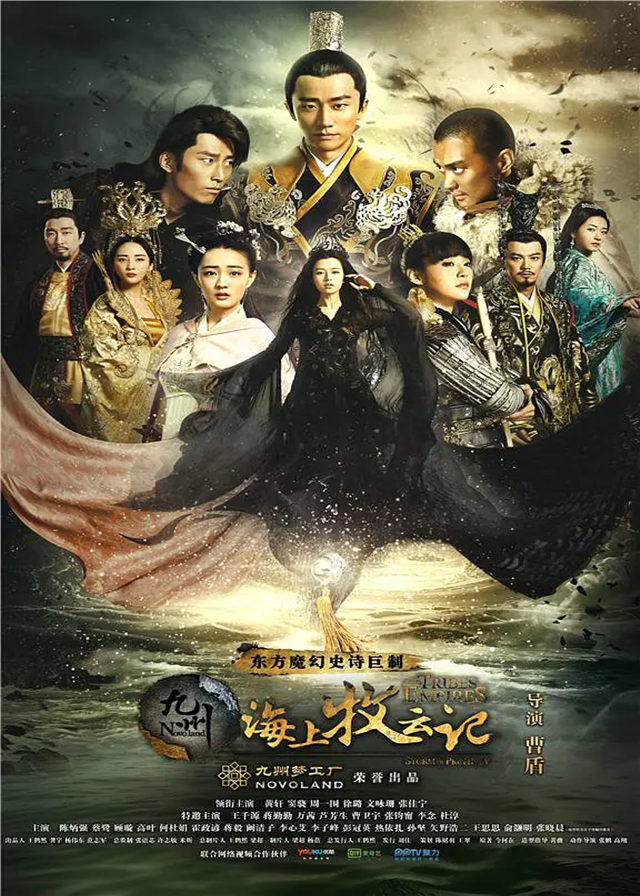Tribes and Empires: Storm of Prophecy Episode 70 Recap
> Tribes and Empires: Storm of Prophecy Recap
- 1
- 2
- 3
- 4
- 5
- 6
- 7
- 8
- 9
- 10
- 11
- 12
- 13
- 14
- 15
- 16
- 17
- 18
- 19
- 20
- 21
- 22
- 23
- 24
- 25
- 26
- 27
- 28
- 29
- 30
- 31
- 32
- 33
- 34
- 35
- 36
- 37
- 38
- 39
- 40
- 41
- 42
- 43
- 44
- 45
- 46
- 47
- 48
- 49
- 50
- 51
- 52
- 53
- 54
- 55
- 56
- 57
- 58
- 59
- 60
- 61
- 62
- 63
- 64
- 65
- 66
- 67
- 68
- 69
- 70
- 71
- 72
- 73
- 74
- 75
Mu Ruhan was captured by the Helan army and subjected to severe humiliation by Hanzhou soldiers, including being stripped and branded on his face by Tieyuan with a slave mark, using Mu Rusuo's helmet to confront him. Despite this, Mu Ruhan remained defiant, asserting that the Helan forces were merely a delaying tactic, and that Mu Rusuo had returned to Tianqi and would lead the Mu Ru Iron Cavalry back to exact revenge.
Mu Ruhan declared his mission complete and stated he would await Mu Rusuo's return. Tieyuan, intent on showcasing his victory, demanded that Shuofeng Heye serve as a "death messenger" to deliver news of their triumph to Shangyang Pass. This mission was met with strong opposition from Shuofeng Heye's tribe and particularly from Tieduo, who feared it was a suicide mission. Tieyuan dismissed Tieduo's protests, even slapping her. Amidst this, Mu Ruhan laughed, commenting on the disunity of the Hanzhou people.
Shuofeng Heye ultimately accepted the perilous assignment, bowing to Tieyuan and requesting to be informed of the final victory. Meanwhile, Muyun Yanshuang was held captive, chained in a tent, determined to survive and avenge the fallen Mu Ru soldiers. Tieduo, tearfully begging to accompany Shuofeng Heye, found him in his tent. Shuofeng Heye refused her request, revealing his intention to use the journey to Shangyang Pass to take Muyun Yanshuang home.
Jealous and fearing Muyun Yanshuang would be a burden to Shuofeng Heye, Tieduo attempted to kill her. Muyun Yanshuang, seeking to survive, first asked for a bowl of Hanzhou milk tea, then revealed her identity as a princess of the Duan Dynasty whose father possessed land, an army, and gold.
She convinced Tieduo that keeping her alive offered significant political utility to Shuofeng Heye, who aspired to become the king of Kyushu and enter Zhongzhou, as her father could guarantee his safety there. Though initially skeptical, Tieduo ultimately believed Muyun Yanshuang and released her. The next day, when Shuofeng Heye looked for Muyun Yanshuang, Tieduo informed him that she had escaped.
Outside Shangyang Pass, Mu Rusuo finally met Muyun Lu, who, dressed in mourning, sorrowfully informed him of Emperor Muyun Qin's death. Mu Rusuo was overcome with grief. Muyun Lu initially attributed the emperor's death to a sudden illness while hinting at underlying complexities, but the full accusation of Mu Ruhanjiang's regicide was soon revealed by accompanying silver-armored guards. Mu Rusuo, believing the accusation, became enraged and vowed to kill his son.
In Hanzhou, the Mu Ru soldiers learned of Emperor Muyun Qin's demise and desperately pleaded with Muyun Han to return to Tianqi. Muyun Han, realizing the court's deliberate abandonment and attempt to eliminate the Mu Ru family by denying his Hanzhou army supplies, resolved to stay and fight. He asserted that the Mu Ru family would not be defeated as long as he lived and vowed to restore their purple qilin crest.
To address the critical food shortage, Muyun Han was approached by an individual connected to Suodameng, who offered grain from Suodameng's secret granary. Muyun Han rejected the limited offer, instead demanding all grain available on the Hanzhou black market. He secured this deal by threatening the individual and detaining him until the first shipment of supplies arrived, thus resolving the Mu Ru army's dire need for provisions.
In Tianqi City, Xue Huo, bearing a decree from He Ge, announced the immediate disbandment of the Mu Ru Iron Cavalry and its merger into the Muyun Silver Armor, effectively declaring the end of the Mu Ru Iron Cavalry. Soldiers were ordered to remove their helmets, a symbol of their identity, with disobedience punishable as regicide. The Mu Ru Iron Cavalry, unwilling to betray Mu Rusuo, initially refused the order.
Xue Huo pressured Yu Xinji, who angrily commanded his men to comply and even knelt first. Soldiers tearfully removed their helmets, though General Chang defiantly refused and died for his loyalty. Xue Huo then ordered the removal of the purple qilin banner of the Mu Ru family, which flew over Shangyang Pass.
The Mu Ru soldiers drew their swords in protest of this desecration, but Yu Xinji, under continued pressure from Xue Huo and considering the lives of his fellow soldiers, personally removed the banner. Thus, the 300-year-old glory of the Mu Ru family was brought to an end.













